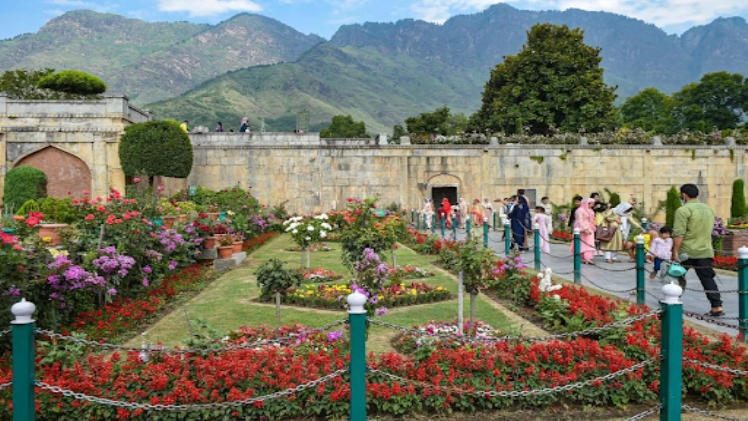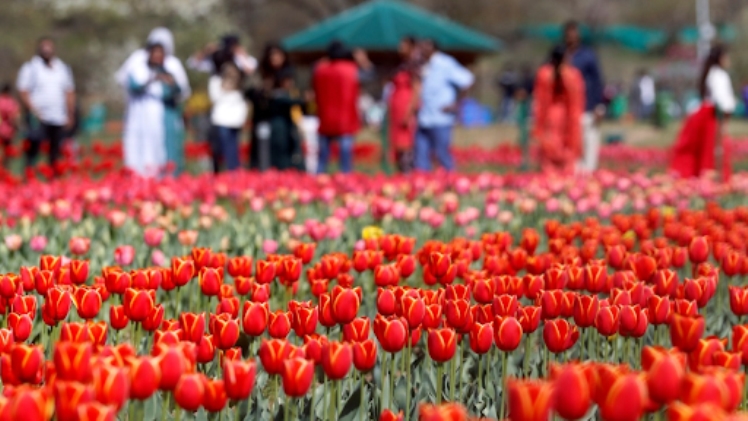Nestled in the lap of the Himalayas, Kashmir has always been a captivating destination for travelers seeking the perfect blend of natural beauty and rich cultural heritage. While many visit this paradise during the famous Tulip Festival in Kashmir or to enjoy the serene Kashmir holidays, there’s a hidden treasure trove waiting to be discovered by history enthusiasts and adventurers alike – the ancient ruins of Kashmir.
In this blog, we embark on a journey through time to explore the mystical and intriguing ancient ruins of Kashmir, uncovering the stories they hold and the secrets they guard.
Kashmir’s Forgotten Heritage: Ancient Ruins
The Ancient Ruins of Kashmir are scattered across the region, offering glimpses into the past that are both awe-inspiring and mysterious. These remnants of a bygone era provide a unique perspective on the history and cultural evolution of this region, making them an essential part of any Kashmir holiday itinerary.
1. The Ruins of Parihasapura: Echoes of a Bygone Era
Our journey into Kashmir’s past begins with a visit to the ruins of Parihasapura, located just a short drive from Srinagar. These ancient ruins, dating back to the 8th century, once housed a thriving Buddhist monastery. The site’s exquisite stone carvings and architecture provide a glimpse into the region’s Buddhist heritage, a period when Buddhism flourished in Kashmir.
2. The Mysterious Martand Sun Temple
Another must-visit ancient ruin in Kashmir is the Martand Sun Temple, often referred to as the ‘Hindu Parthenon’ due to its architectural grandeur. Built in the 8th century by King Lalitaditya, this temple was dedicated to the Hindu sun god, Surya. Its imposing columns, intricate carvings, and panoramic views of the surrounding landscape make it a photographer’s paradise.
3. Rediscovering Avantipur: The Forgotten Capital
In our quest to explore the Ancient Ruins of Kashmir, we cannot overlook Avantipur, which was once the capital of Kashmir during the 9th century. The Avantipur ruins, consisting of two Hindu temples – Avantiswara and Avantishwara – are a testament to the grandeur and prosperity of that era. The intricate carvings and structural designs speak volumes about the architectural prowess of the time.
4. Awantipora Ruins: A Glimpse into Kashmir’s Shaivite Legacy
Kashmir has a deep-rooted connection with Shaivism, a sect of Hinduism that worships Lord Shiva. The Awantipora Ruins, located in the Pahalgam area, offer a fascinating insight into Kashmir’s Shaivite heritage. These temples, dating back to the 9th century, are dedicated to Lord Shiva and are known for their distinctive architecture and serene surroundings.
5. Harwan Gardens: A Testament to Persian Influence
Kashmir’s historical tapestry isn’t limited to indigenous influences alone. The Harwan Gardens, situated on the banks of the Dachigam National Park, reflect the Persian influence on Kashmir’s architecture. Built by King Harsha in the 7th century, these gardens feature a series of terraced lawns, flowing water channels, and chinar trees – a popular Persian symbol. The ruins of a Buddhist stupa and an ancient Hindu temple within the gardens add layers to their historical significance.
Kashmir Holidays: A Glimpse into the Past

Incorporating a visit to these ancient ruins into your Kashmir holidays will not only add depth to your travel experience but also offer a unique opportunity to explore the historical roots of this captivating region. Walking amidst the crumbling walls and intricately carved pillars, you can almost hear the whispers of the past, telling tales of dynasties, rulers, and the cultural tapestry that once thrived here.
The Legacy of Kashmir’s Ancient Ruins
The Ancient Ruins of Kashmir serve as a testament to the diverse cultural influences that have shaped this region over the centuries. From Buddhism and Hinduism to Persian and Islamic influences, Kashmir’s history is a tapestry woven with threads from different civilizations. Exploring these ruins provides a glimpse into the coexistence and fusion of these diverse cultural elements.
The Decline and Rediscovery
Unfortunately, many of these ancient sites have suffered the ravages of time, natural disasters, and neglect. Over the years, some of these architectural wonders have been partially destroyed, leaving only fragments of their former glory. However, efforts are underway to preserve and restore these priceless relics of Kashmir’s past, ensuring that future generations can continue to trace the history of this region.
The Enigmatic Tulip Festival in Kashmir

While exploring the Ancient Ruins of Kashmir offers a deep dive into the past, a visit to the region during the Tulip Festival adds a vibrant splash of color to your Kashmir holidays. Held annually in the spring, usually in April, the Tulip Festival is a celebration of nature’s beauty. The Indira Gandhi Memorial Tulip Garden in Srinagar, one of Asia’s largest, comes alive with a riot of colors as thousands of tulips bloom in unison. It’s a sight that rivals the beauty of any ancient ruin and offers a vivid contrast to the historical sites of Kashmir.
Tracing the Past of Kashmir…..
Kashmir holidays and the Tulip Festival in Kashmir may have put this region on the global tourism map, but there’s so much more to discover beyond the present-day attractions. The Ancient Ruins of Kashmir offer a unique opportunity to step back in time and connect with the rich history and diverse cultural influences that have shaped this beautiful land. Whether you’re a history enthusiast, an architecture lover, or simply someone seeking a deeper connection with the places you visit, these ancient ruins are sure to leave an everlasting mark on your Kashmiri journey.
So, the next time you plan a trip to Kashmir, don’t forget to trace the past through the enigmatic ancient Ruins of Kashmir – a hidden gem waiting to be explored.
